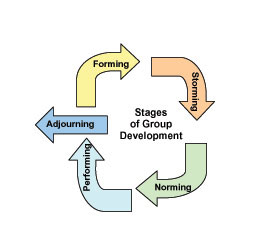The book that I chose for my leadership course at Ohio State was called Toy Box Leadership: Leadership Lessons from the Toys You Loved as a Child. Initially, I was extremely skeptical. The topic seemed legitimate, yet how could you write a legitimate novel, over 200 pages, by directly taking leadership lessons from silly toys? Wouldn’t some of the parallels drawn be a little bit of a stretch? And, most importantly, what toys could you use?
Well, the answers to those questions would come. Firstly, let me say that I wholeheartedly recommend this book to anyone who is still a kid at heart. Many of the other leadership books that I’ve read have great concepts, but seemingly dry filler and aren’t the most effective way of learning to lead. When it comes to leadership books, any text that can simplify leadership lessons to vocabulary and concepts that can be understood by all ages and background definitely succeeds. Even better, when a book relates leadership concepts to things that all of us experienced at a young age: creative play, it truly allows for a great opportunity for learning leadership.
So are you
still wondering about the answers to those questions? Well, I don’t want to
spoil a surprise, but drawing on the previous paragraph, I would definitely say
that the authors (Ron Hunter and Michael Waddel) succeeded by writing a legitimate
leadership novel with legitimate leadership lessons. I would also argue that
they are not silly toys, and that, in fact, they are great learning tools,
regardless of age.
To criticize
the book, I must say that drawing some of these conclusions requires a bit of a
stretch. A creative mind is definitely something that you need in order to visualize
these connections; however most of them are easy to understand.
That being
said, in a short summary, here are the connections drawn in this book:
- LEGOs = Relationships, “Building Begins with Connecting"
- Slinky Dog = Vision, “Pull-Then Be Patient”
- Play-Doh = Mentoring, “The Mold Makes the Man”
- Yo-Yo = Creativity, “It Only Happens When You Let Go”
- Mr. Potato Head = Communication, “The Right Face for the Right Place”
- Rubik’s Cube = Ethics, “Making the Right Turn”
- Rocking Horse = Efficiency, “All Show and No Go”
- Little Green Army Men = Strategy, “Success Is in the Setup”
- Lite-Brite = Message, “Illuminate to Communicate”
- Weebles = Endurance, “Staying Down Is Not an Option”
Obviously, it
can be hard to decipher, but having a background in some of those topics does
help me understand it a lot more. As for the Yo-Yo analysis, it was the one comparison
I truly didn’t understand. Not having an extremely strong background in
creative roles probably didn’t help, but I really couldn’t understand how they
were trying to draw that comparison. That being said, the one’s that most “spoke”
to me were Play-Doh, Little Green Men, and Weebles. Those analogies truly hit
home and allowed me to grow.
This book also
helped me grow personally. It made me discover that things don’t have to be
taken too seriously in order to learn. You don’t have to be a militant leader,
but rather someone who takes the situation back to the grassroots of figuring
out what to do. Make things simple, and most importantly, have fun with it!









